Search
Search Results
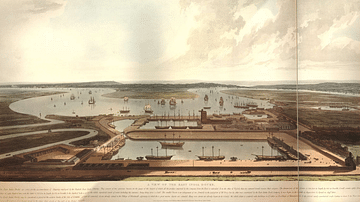
Article
Fall of the East India Company
The British East India Company (1600-1874) was the largest and most successful private enterprise ever created. All-powerful wherever it colonised, the EIC's use of its own private army and increasing territorial control, particularly in...
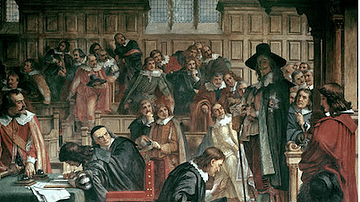
Definition
Grand Remonstrance
The Grand Remonstrance of 1641 was a list of grievances issued by Parliament against King Charles I of England (r. 1625-1649). It recorded what Parliament saw as the monarch's abuse of power, his illegal raising of taxes outside Parliament...
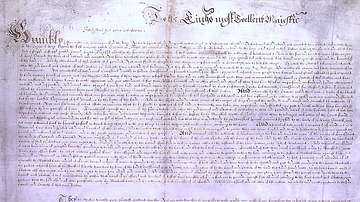
Article
Petition of Right
The Petition of Right was a list of demands of King Charles I of England (r. 1625-1649) issued by Parliament in June 1628. The petition came after three years of disagreements between the king and Parliament over finances, religious matters...
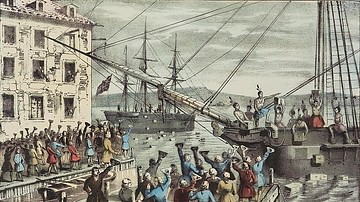
Definition
Boston Tea Party
The Boston Tea Party was an act of political protest carried out by American colonists on 16 December 1773, in Boston, Massachusetts. Disguised as Mohawk Native Americans, the colonists dumped 342 crates of tea into Boston Harbor to protest...
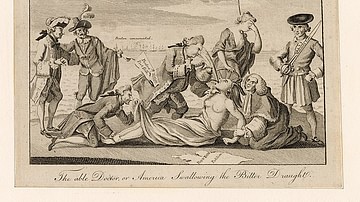
Definition
Intolerable Acts
The Intolerable Acts, also known as the Coercive Acts, were five laws passed by the Parliament of Great Britain in 1774 to punish the Thirteen Colonies of British North America for the Boston Tea Party. Though the acts primarily targeted...
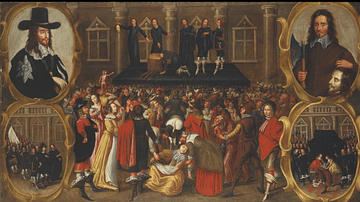
Article
Consequences of the English Civil Wars
The impact and consequences of the English Civil Wars (1642-1651) were many and far-reaching. Charles I of England (r. 1625-1649) was executed, and the monarchy was abolished. Oliver Cromwell (1599-1658) then headed the Republic as the Lord...
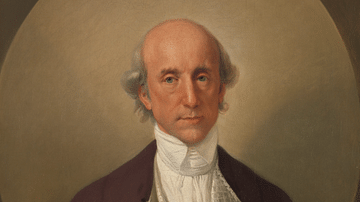
Definition
Warren Hastings
Warren Hastings (1732-1818) was appointed the Governor of Bengal by the British East India Company (EIC) in 1772 and became its first Governor-General in India from 1774 to 1785. Under his tenure, the EIC ruthlessly expanded its territory...
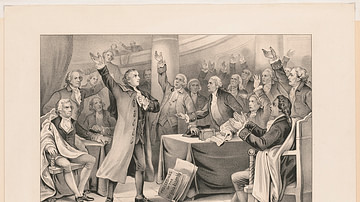
Article
Give Me Liberty or Give Me Death
"Give me liberty or give me death!” is the closing line from a speech made by Patrick Henry to the Second Virginia Convention on 23 March 1775, in which he argued that war with Britain was inevitable and a militia should be raised to defend...
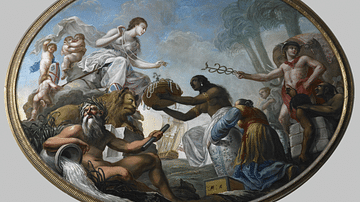
Collection
The History of The East India Company
The British East India Company (EIC) was founded as a trading company in 1600. Run by a board of directors in London, the company employed a private army, first to protect the trade it conducted in the Indian subcontinent and then to expand...

Definition
Charles I of England
Charles I of England (r. 1625-1649) was a Stuart king who, like his father James I of England (r. 1603-1625), viewed himself as a monarch with absolute power and a divine right to rule. His lack of compromise with Parliament led to the English...